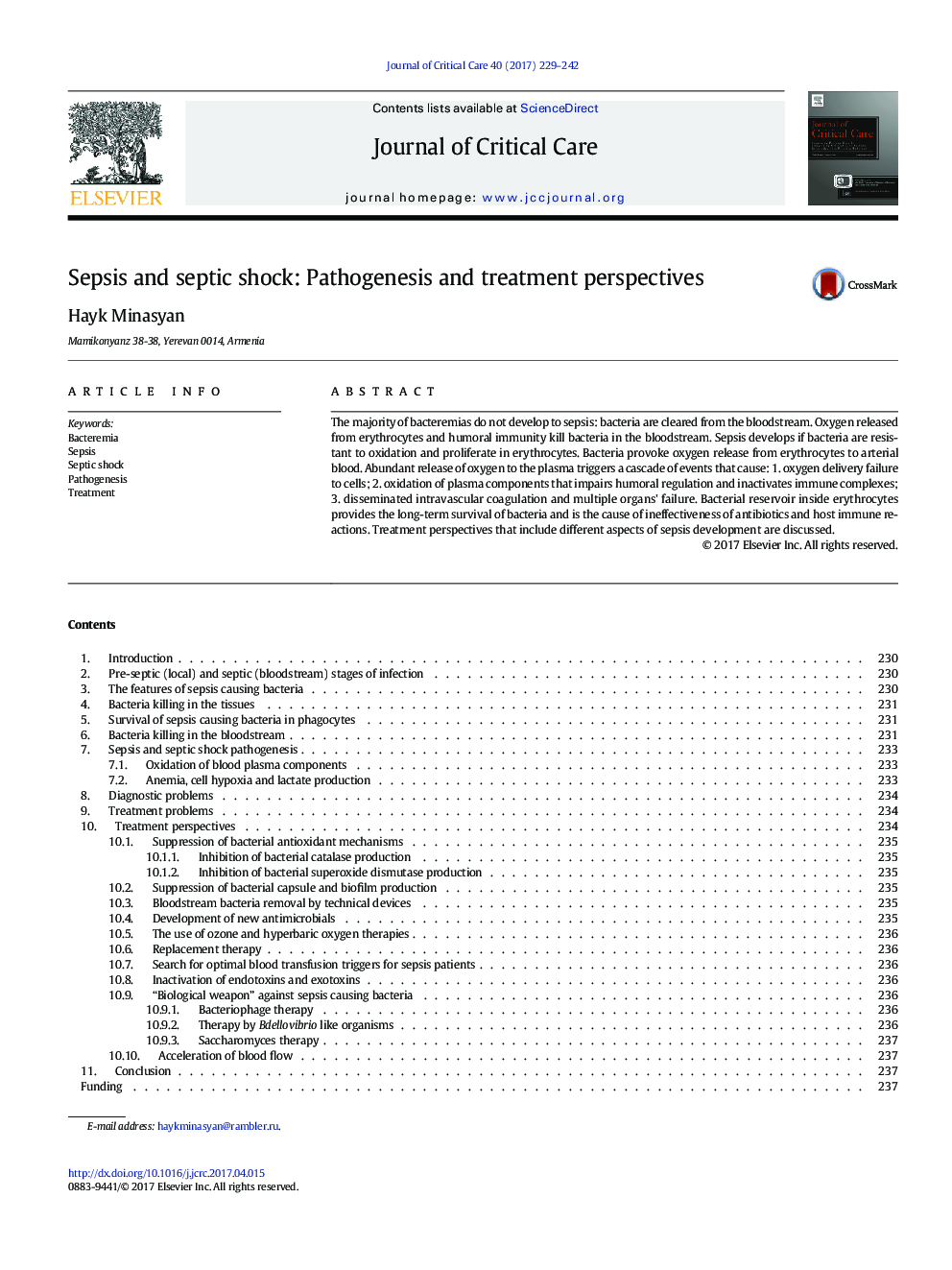| Article ID | Journal | Published Year | Pages | File Type |
|---|---|---|---|---|
| 5583515 | Journal of Critical Care | 2017 | 14 Pages |
Abstract
The majority of bacteremias do not develop to sepsis: bacteria are cleared from the bloodstream. Oxygen released from erythrocytes and humoral immunity kill bacteria in the bloodstream. Sepsis develops if bacteria are resistant to oxidation and proliferate in erythrocytes. Bacteria provoke oxygen release from erythrocytes to arterial blood. Abundant release of oxygen to the plasma triggers a cascade of events that cause: 1. oxygen delivery failure to cells; 2. oxidation of plasma components that impairs humoral regulation and inactivates immune complexes; 3. disseminated intravascular coagulation and multiple organs' failure. Bacterial reservoir inside erythrocytes provides the long-term survival of bacteria and is the cause of ineffectiveness of antibiotics and host immune reactions. Treatment perspectives that include different aspects of sepsis development are discussed.
Related Topics
Health Sciences
Medicine and Dentistry
Anesthesiology and Pain Medicine
Authors
Hayk Minasyan,
